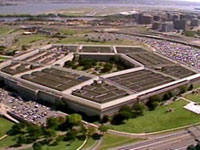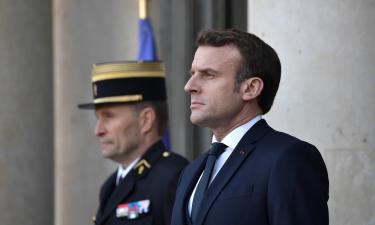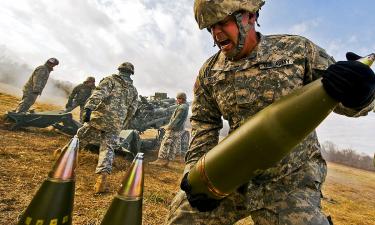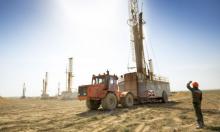Pentagon's Information Operations Anarchy
OSD, President, Military Commanders Stuck in 1995

By John Stanton
1995--Silence is not Golden: US Government Efforts to Establish Information Security Strategies. A Wall Street official indicated there are transactional costs to doing business in the digital age and one of them is information fraud. Cable industry officials said information warfare between information thieves and industry is a problem that the cable companies handle through their own countermeasure...Someone woke up one morning and decided a new threat was needed...That new threat to national security is electronic information warfare (EIW) the hottest and most over hyped threat inside the Washington, DC Beltway and includes everything from encryption to technology transfer to legitimate battlefield applications and ominous new defense measure to protect the US economy and culture...To have high confidence that the network vulnerabilities would be reduced, the government will have to insert itself more and in new ways into the commercial marketplace.” Journal of Technology Transfer
1997—Dilemmas Abound in Crafting National Information Policy, National DEFENSE Magazine
1998–White House Plans Cyber Homeland Defense Effort, National DEFENSE Magazine
1998—Nation's Info Infrastructure Vulnerable to Nuclear Pulse (HEMP). There is a lot of misinformation put out by the mass media and movie companies about high altitude electromagnetic pulse. This is a subject that is actually well-understood and has been well documented for 40 years. People have forgotten everything we learned in this area and chose to ignore the threat. The amount of effort to do some simple things to make electronic systems less vulnerable is minuscule and any god engineer knows how to design-n this type pf protection.
2000--Rules of Cyberwar Baffle US Government Agencies. Congress also has stepped in to fund increased cyber-warfare activity and numerous hearings have been held on the subject. Late last year, lawmakers approved nearly $500 million of the president's early 1999 request for information operations. A Senate staffer indicated: "The Congress is in the mood to fund programs related to information operations. On the House side, there have been talks about a future Homeland Defense Committee that would be formed to deal with cyber defense issues, along with chemical and biological defense concerns. National DEFENSE Magazine,
February 2001–U.S. Homeland Defense Policy Mired in Competing Interests, National. DEFENSE Magazine
2002–Terror in Cyberspace: Terrorists Will Exploit and Widen the Gap Between Governing Structures and the Public (written prior to 911). American Behavioral Scientist
2007--Evolutionary Cognitive Neuroscience: Dual Use Discipline for Understanding & Managing Complexity and Altering Warfare. “In February 2007, the Defense Science Board (DSB) released a little noticed report titled, 21st Century Strategic Technology Vectors. In the report the DSB recommended that military planners explore the Human Terrain in which US warfighters operate. To do this, the DSB suggested a radical approach: tap into the non-kinetic social sciences network for analytical data and marry future findings and applications to the military warfighting toolkit.” Dissident Voice. Also covered in the Washington Times.
2008—Framework for Strategic Cultural Analysis. Warning on culture clash within military, academia and how will HT analysis be used in kill chain. Briefing Defence Academy , Cranfield.
Holy Crap!
Well I'll be a hog-tied mule! I wrote all that stuff? I can tell you it was only thanks to some great editors that I got to cover those issues way back in the 1990's and have my name attached to them.
I apologize profusely reader/readers for this apparently self-serving article.
But hear me out!
When I read the news today that Secretary of Defense Robert Gates was going to look into Information Operations practices in response to the widely covered Furlong-Pelton-CIA-DOD affair, I immediately set out to write a piece that would cover new ground, illuminate the field of Information Operations/Strategic Communications and give you, the reader, a couple of new insights. But I had that Deja Vu moment that I'd traveled this ground before and, indeed, I had. I'd actually forgotten about some of the items that my awesome editors had me track down.
So what to do?
Should I rework those past articles sort of like John Lennon did with the song Revolution (fast to slow)? Or should I just cite them an leave 'em at that? I chose the former and some of the latter.
My only, new, two cent insight on these matters was that the realization that the speed of global communications can barely keep pace with the accelerating rehash rate operating in the minds of America's political/military leaders and, for that matter, media groups here in the USA. The problems and solutions that we so desperately seem to need to justify war/expenses or construct a thesis/report have, for the most part, all come before. In this instance, the DSB's work is instructive.
Does anyone in IO, for example, know what they are doing beyond manipulating electrons? Do journalists understand the subject matter/issues? Are the SECDEF and Commanders in control of information that matters? Does history or information from the past have anything instructive to say?
Here are some bits from 1997 (Dilemmas Abound...citing directly):
Recent cyber skirmishes between enemy nations offer stark examples of what could happen in the murky, undefined confines of information warfare. One instance involves a reported attack by Indonesia on an East Timor web site based in Ireland. These attacks forced East Timor's web site host in Ireland to shut down and relocate to another server. China and Taiwan, meanwhile, already may have taken cyber warfare to the next level. After Taiwan's president Lee Teng-hui voiced support for the island's independence in the summer of 1999, China began to launch cyber attacks aimed at altering official Taiwanese government websites. What followed could be considered state-to-state cyber war, in which complete infrastructures were assaulted.
"In late July, about a month after Lee's statement, Taiwan experienced a nationwide blackout. One week later, many of the nation's banking teller machines crashed," said John Pike, a military intelligence expert at the Washington, D.C.-based Federation of American Scientists. "Taiwan denied at the time that it was anything out of the ordinary ... but this seems much more than mere coincidence," he said in an interview.
"U.S. intelligence officials, speaking on background, explained that they have routinely penetrated potential enemies' computer networks. These officials claim that thousands of attacks have taken place, and sensitive information was stolen.
Assume the United States decided to shut the Internet down. According to an international lawyer, "The problem now is that you have to figure out where U.S. cyberspace ends and international cyberspace begins. How would that affect the international community? What are the implications? Truly, it is an unexplored region, and no one knows how a nation would respond to a full scale, attributable cyber attack."
An Assessment of International Legal Issues in Information Operations," the consequences of a large-scale campaign of computer network attacks "might well justify a large-military scale response."The report, additionally, said that "there are no show stoppers in international law for information operations as now contemplated by the Defense Department ... The growth of international law in these areas will be greatly influenced by what decision makers say and do at critical moments." According to Maj. Gen. Wang Pufeng of the Chinese Army, "In the final analysis, information warfare is conducted by people at all levels of decision making and operations."
Noted Dorothy Denning, in 1997 a professor of computer science at Georgetown University in Washington, D.C. "In this field, you've got an interesting mix of people: Chicken Littles, who believe the sky is falling and everyone's out to get us, and Big Brother-types who fear government is everywhere. It's hard to find balance sometimes." Denning, the author of Information Warfare and Security, believes that the most effective defense against cyber threats, real or imagined, is an educated body of citizens, "an educated public that understands the issues and the threats involved."
Information Operations Clearly Defined
Does anyone in the Pentagon—civilian or military--consult the Defense Science Board's work product? I mean, OSD pays for the effort. Does anyone in the media with a national security beat take a peek at the DSB website (www.acq.osd.mil/dsb/). If not, they should. It is a virtual think tank for retired military officials, contractors/industry representatives who are retired military officials, contractors who are not retired military officials, government and agency officials and academia. All the major defense firms are there as are legions of private consultants. For and non-profit communities eagerly await each and every DSB study because—not only do the officials producing each study represent potential bidders for US government work--each study may provide a clue to the pathway to the government's pot of gold. Hey! It's just business.
For those who simply want to know what's going on in the national security world—minus political machinations—trek over to DSB. It's work is exceptional in its ability to divine trends and it explains the issues in a wholly readable manner.
If you are researching or covering a national security matter, you'd best be consulting DSB.
Two of the more classic and influential DSB reports deal with Information Operations/Cyber War and Social Science and the Military. Reading these the thought arises: Does the President and Pentagon drive national security requirements or does commerical industry/academia?
DSB's classic hit Electronic Intrusion Threat to National Security and Emergency Preparedness Telecommunications (4 December 1994) is still timely. This was arguably the first study of its kind that ignited debate within the communications industry and privacy groups over how intense US government involvement would be in the development of the nascent Internet and other elements of the nation's critical communications infrastructure. The National Security Agency played a major role in this DSB study and that was of great concern to the private sector. As far back as 1995, many communications analysts were stating that NSA was already “sniffing” key network access points within the United States; i.e., harvesting telephone calls of interest. Not much has changed. This report gets you into SONET Rings and Asynchronous Transfer Mode. At the time, leading edge technologies for information transfer and swtiching.
DSB's 2006 Summer Study on 21st Century Strategic Technology Vectors, among other things, argued for the merging of military science and social science. Chapter 2 of the report is titled Human Terrain Preparation. Constructed throughout 2006 and published in February 2007, Vectors is a seminal study focusing a good deal of its energy on Human Terrain Preparation, Behavioral Science and the need to incorporate data, kinetic or otherwise into the warfighters/DOD's tool kit.
One of the more notable quotes from Vectors follows. And it is the defintion and essence of Information Operations. IO is not complicated though contractors, journlists, politicians, and commanders will say otherwise (all with competing interests). As one former Delta Force/SOF veteran once said: “It's really just about communicating with people and understanding their point of view.”
The key is, of course, to make sure the filter for that information is not someone beholden to the balance sheet or seeking fame and fortune. As the DSB report indicated, the best information harvester is the soldier on the ground empowered to be a powerful collector of information. Who better to do that? That soldier's life and those of his comrades are at stake. Perhaps even his/her family back home. That's a powerful incentive to get the data and get it right.
Perhaps most central is to gain a deeper understanding of how individuals, groups, societies and nations behave and then use information to improve the performance of U.S. forces through continuous education and training to shape behaviors of others in pre-, intra- and post-conflict situations. Key enablers include immersive gamingenvironments, automated language processing and human, social, cultural and behavior modeling. The second is greatly enhanced capabilities to observe people, things, and activities in urban and other tough terrains and to record and recall the data. This will reduce sanctuaries where adversaries hide and draw support for their operations, and reduce their ability as irregular forces to hide in plain sight. Needed are new suites of close-in sensors and making the soldier on the ground empowered to be a powerful collector.
The third is extracting actionable information hidden in massive data much more rapidly than is done today. This capability would be critically important to commanders at all levels, intelligence analysts, and soldiers and marines on patrol. Last is producing effects—offensive and defensive, kinetic and non-kinetic, lethal and non-lethal—tailored rapidly to the circumstances in order to achieve the desired and avoid the counterproductive.
John Stanton
Subscribe to Pravda.Ru Telegram channel, Facebook, RSS!




